Introduction

Ever since I was told that I will be using the new Classic 350 as my long-termer, I have been imagining myself thumping my way through the glorious and treacherous roads of Ladakh. I have seen myself riding under the pristinely blue skies, through sub-zero temperatures, only to reach Pangong Lake, park the saddled up Classic 350 on its edge and click some memorable pictures.
Swoosh! Back to reality. All of that has only been to my imagination. The Classic’s runs have been limited to everyday commutes and short weekend jaunts. Nevertheless, I had to test the motorcycle’s touring mettle because a lot of Classics are used for that purpose. Fortunately, an opportunity to ride it down to Goa from Mumbai struck recently and I was more than ready. So did the best-selling RE do well on this 1,200km round trip? Let’s see.
Mounting luggage

This was going to be a mere four-day journey so even a small duffle bag would have been enough to carry the luggage. However, Pratheek made things much easier for me and lent his Rynox Drystack Stormproof saddlebags. With a storage capacity of 30-litre each, these are generously sized and you can read all about them here. Now, these bags are meant specifically for Royal Enfield, so mounting them wasn’t a task whatsoever. The adjustable Velcros adjoining the two bags meant I could place them close enough such that they didn’t hang too low. Plus, the large fastening strap on one end sits securely under the grab rail and keeps them from moving. Throughout the ride, these Rynox Drystack Stormproof saddlebags stayed put like good kids.
Riding in the dark

The ride to Goa from Mumbai took place in two legs (or days). The first was to reach Pune a day before we began our ride. I decided to leave for Pune in the evening after wrapping up my day’s work. And that gave me the opportunity to thoroughly test the Classic’s headlamp. I must say, the motorcycle could do better in this area. At low beam, the headlamp illuminates a good part of the road ahead. However, as I touched the highway and rode on high beam, I realised it severely lacks spread, even for a narrow two-lane road. Although the throw is decent, the shortage of spread meant I had to ride slowly while going through corners. But on the brighter side, the presence of hazard lamps made stopping in dark areas much safer.
Highway cruising

The roads opened up into a nice, unblemished, four-lane highway after crossing Kolhapur. This is where the Classic felt seamless. Let me address the elephant in the room – vibrations. I am glad to tell you that there are almost none. I have addressed this before as well and now, while riding the bike for hours continuously, this one quality was truly admirable. You start feeling a noticeable buzz only when you cross 100kmph, but even there it isn’t a bane.
On the highway, I realised that the maximum comfortable cruising speed on the Classic is 100kmph. It can even go up to 110kmph and slightly beyond but then fatigue starts kicking in real quick. One of the main reasons for that is the absence of any wind protection. The after-market tall windscreen might be a rescue here. But then the brakes of the Classic lack the kind of bite needed to promptly stop a bike this heavy. Hence, 100kmph was the maximum speed I felt safest at.

Now, overtaking on the highway does require some planning, time, and downshifting. However, the Classic isn’t meant for a hasty ride, is it? It’s best enjoyable unhurried and relaxed. And that reminds me of its comfort. The ergonomics of the Classic 350 are almost neutral. The arms are relaxed and so are the legs. While the seat is also decently cushy, the low density of foam starts showing its effect after a few hundred kilometres. Your rear tends to start digging in, hurting the lower back. However, thanks to the presence of enough space to move back and forth, I kept moving on the seat to deal with the slight discomfort.
Chorla TT

Ghats are undeniably the best part of long rides; the roller-coaster-like thrill they offer is unmatchable. Now, if you think the Classic isn’t fun on twisty roads, do not let its old-school design deceive you into mistaking it for a slouch. The motorcycle proved to be a graceful corner-carver at Chorla ghat, provided my inputs were smooth and gradual. It demands some effort to tip into corners but once leaned over, it carries on smoothly without feeling squishy or unnerving. Even the tyres hold on to the tarmac incredibly well, provided the road surface is dry and grippy.

There were certain broken off-road-like sections in the ghat that scared me initially, given the road-focused dimensions and components of the Classic. However, it was only through extreme undulations that it felt harsh. As for small stones, ruts or potholes, the Classic glided over these obstacles with ease, provided I kept the pace high.
Grouse

One issue I had with the Classic that’s worth mentioning is the fitment of the rearview mirrors. The positioning of the mirrors could never stay fixated in the position I wanted it to as they are loose at the upper end of the stem. The ball and socket joint, which allows you to adjust the direction it is focusing in, isn’t as firm and sturdy as it should be.
Fuel efficiency

The new Classic 350 returned a mileage of 34.4kmpl and 33.5kmpl on the ride to and fro Goa, respectively. With a tank capacity of 13-litres, that’s a full-tank range of about 448km, which is commendable considering I was totally gunning the bike for the most part of the ride. If ridden more sanely, the mileage could be even better, I guess.
Distance covered: 1,200km
Odometer: 4,400km
Average fuel efficiency: 34kmpl
Photography by Kaustubh Gandhi

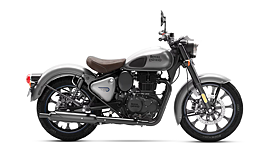
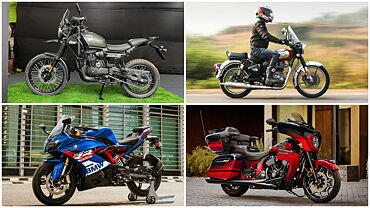
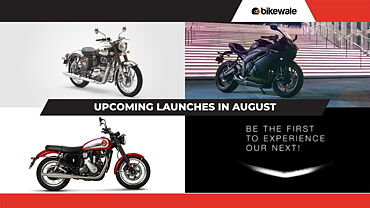
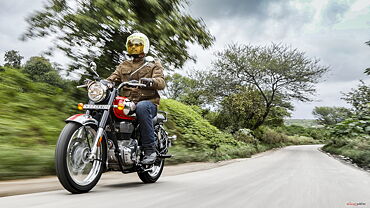



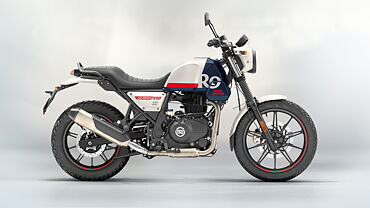
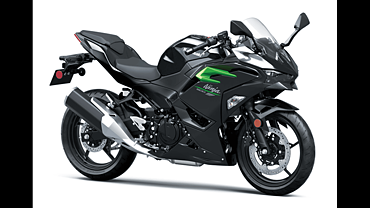
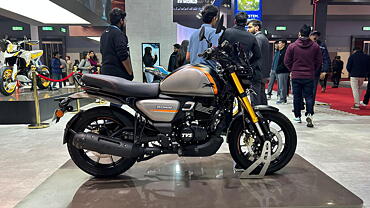
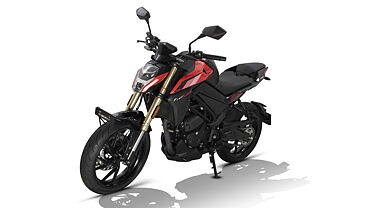
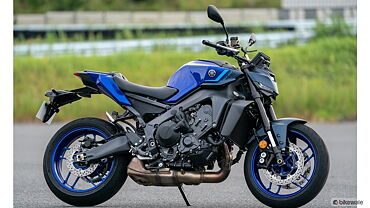
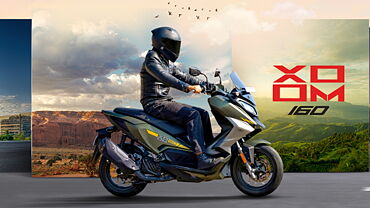
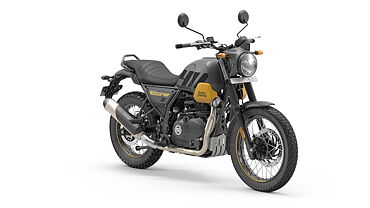
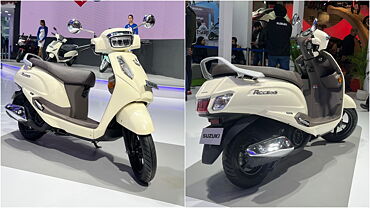
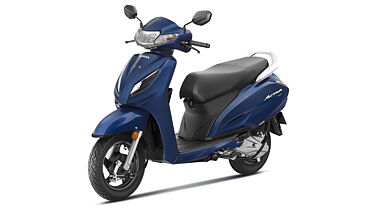

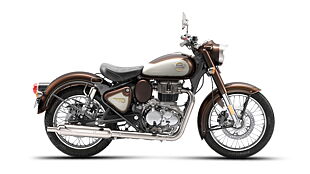


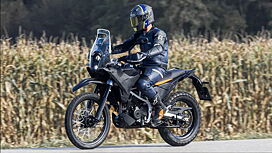

![KTM 390 Adventure X [2025] KTM 390 Adventure X [2025]](https://imgd.aeplcdn.com/272x153/n/cw/ec/190885/390-adventure-x-2025-right-side-view.jpeg?isig=0&q=80)